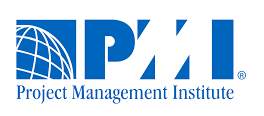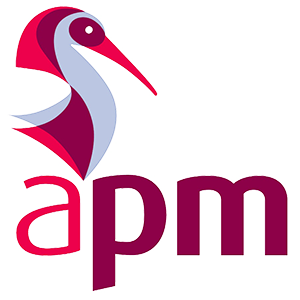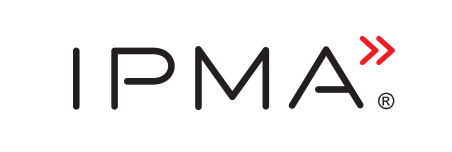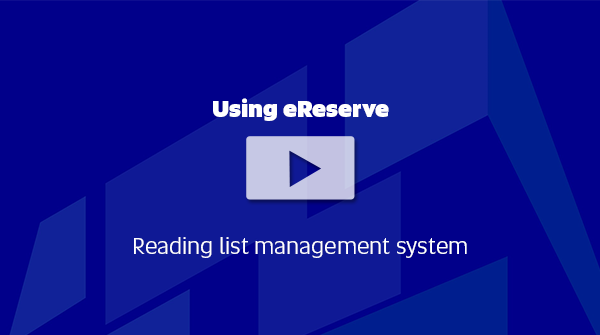Topic outline
-
-
-
Research
-
Planning your search (3:29)
Plan your search (2:25)
Picking a Research Topic (3:09)
Scholarly Sources Explained (2:21)
Finding a scholarly source (3:21)
Evaluating Information (3:16)
-
-
Associations for Project Management
-

-
1. The Australian Institute of Project Management (AIPM)

The Australian Institute of Project Management (AIPM) is the premier, longest-serving body for project management in Australia. We are recognised by Australian business, industry and government as the key promoter, developer and leader in project management professionalism.
AIPM is the second-largest member of the International Project Management Association (IPMA), as well as the secretariat of the Asia Pacific Federation of Project Management (apfpm), an organisation initiated by the AIPM in early 2010. This association tends to follow the PMI (PMBOK® Guide – Sixth Edition 2017) methodology.
AIPM has five mission statements:
- Proactively engage, support and grow membership.
- Ensure AIPM has the best national and international competency-based standards and assessment program.
- Improve and support good professional practice.
- Promote and communicate the value of project management.
- Be financially viable and sustainable.
This program Masters of Project Management is endorsed by the AIPM (Australian Institute of Project Management).
AIPM endorses project management courses that align with industry and current best practice and enhance the profession.The Graduate Certificate, Graduate Diploma and the Masters of Project Management are endorsed courses with the AIPM https://www.aipm.com.au/courses/find-a-course
Students who have completed AIPM Endorsed VET or Higher Education Courses or approved project management certifications are eligible for Automatic Recognition for certification at Certified Practising Project Practitioner (CPPP) level, if they join AIPM as an Associate or Member. Once the applicant’s membership has been approved, they must pay a non-refundable RegPM application fee, and submit a completed RegPM application form. The RegPM assessment fee and competency assessment will be waived. This recognition combined with academic qualifications and other skills will support career outcomes for graduates.
https://www.aipm.com.au/courses downloaded 12/12/2019
-

The Project Management Institute (PMI) is a US nonprofit professional organization for project management started in 1969 as project management practices were beginning to be used in the aerospace, construction and defence industries. It is considered to be the largest of the Project Management Associations with an estimated 550,000+ members (according to their website https://www.pmi.org/ 12/12/2019)
It has the PMBOK Guides and Standards that provide the foundation for much of the Project Management profession.
The PMI Endorses courses through the Global Accreditation Center for Project Management Education Programs, this works the same the AIPM endorsement process and has the same implications, the only difference is that this is an international organisation. See http://www.pmi.org/learning/professional-development/global-accreditation-center.aspx
-

Association for Project Management (APM) is the chartered body for the project profession. They have over 30,000 individual members making APM the largest professional body for project management in the UK and potentially Europe. APM is the certification body in the United Kingdom for the International Project Management Association (IPMA).
It is based in the UK and does not appear to be recognised extensively in other countries. The APM uses the APM Body of Knowledge is a foundational resource, providing the concepts, functions and activities that make up professional project management.
-

IPMA is a federation of 70 Member Associations. Historically this has been a European Project Management organisations which started out of an earlier association INTERNET (1965) but later formed into the IPMA in 1996. The associations covered include those PM associations in Europe, Asia, Africa, the Middle East, Australia, and North and South America. Their vision is to
"Promote competence throughout society to enable a world in which all projects succeed."
The IPMA follows the IPMA Competency Baseline (ICB), methodology and not the PMBOK.
https://www.ipma.world/about-us/ downloaded 12/12/2019
-
Certification can be provided to individuals and to organisations information below summarises individual training, standards and certification that relate to Project Management. There are various studies comparing the different certifications and standards however none of the research undertaken appeared to be un-bias or academically valid.
-
National Competency Standards: Certificate IV, Diploma and Advanced Diploma in Project Management
You will find that most of these endorsed courses are provided by 'Recognised Training Organisations' (this including TAFE and other private Vocational Education Providers) and are the Vocational sector BSB41515 Certificate IV in Project Management Practice and the BSB51415 Diploma of Project Management. For example, see http://training.gov.au/training/details/BSB51413.
The quality of the training depends on what organisations is delivering the training. Though these courses are meant to be to the same competency standards nationally there have been many cases where substandard training has been provided.
-
International Standards Organisation (ISO)
ISO 21500:2012 provides guidance for project management and is intended to be used by any type of organization, (public, private or community) and for any project type, irrespective of complexity, size or duration.
ISO 21500:2012 provides a high-level description of concepts and processes that are considered to form good practice in project management. Projects are placed in the context of programmes and project portfolios. The ISO 21500:2012 does not provide detailed guidance on the management of programmes and project portfolios.
As stated in the introduction information the intention of these standards enable:: “people in any organization to understand how the discipline fits into a business environment. It is also intended to be used as a basic guide, aimed at the informed reader without an in-depth knowledge of project management.”
Additional benefits of ISO 21500 stated include:
- Encourage transfer of knowledge between projects and organizations for improved project delivery
- Facilitate efficient tendering processes through the use of consistent project management terminology
- Enable the flexibility of project management employees and their ability to work on international projects
- Provide universal project management principles and processes
(Source: http://www.iso.org/iso/home/news_index/news_archive/news.htm?refid=Ref1662 accessed 12/12/2019)
Increasingly there are training organisations who are developing workshops and internal certification for the standard.
-
Project Management Institute (PMI)
PMI professional certification comes in a variety of levels
- Project Management Professional (PMP);
- Program Management Professional (PgMP);
- Portfolio Management Professional (PfMP);
- Certified Associate in Project Management (CAPM);
- PMI Professional in Business Analysis (PMI-PBA);
- PMI Agile Certified Practitioner (PMI-ACP);
- PMI Risk Management Professional (PMI-RMP); and
- PMI Scheduling Professional (PMI-SP)
These require evidence of competency, tests and a fee. See http://www.pmi.org/certifications/types .
-
Prince 2
PRINCE2 (an acronym for PRojects IN Controlled Environments) is a 'de facto process-based method for effective project management. Used extensively by the UK Government, PRINCE2 is also widely recognised and used in the private sector, both in the UK and internationally' (https://www.prince2.com/aus/what-is-prince2#prince2-definition). PRINCE was established in 1989 by CCTA (the Central Computer and Telecommunications Agency) since renamed the OGC (the Office of Government Commerce). The OGC licences the training to other providers.
The qualifications/training this organisation licences are:
- PRINCE2 Foundation
- Project Management Professional (PMP)®
- Certified Associate in Project Management (CAPM)®
- IPMA Level A (Certified Projects Director)
- IPMA Level B® (Certified Senior Project Manager)
- IPMA Level C® (Certified Project Manager)
- IPMA Level D® (Certified Project Management Associate)
-
The Australian Institute of Project Management’s competency standards
In the early 1990s, the AIPM started the process to developed project management competency standards with the Australian National Competency Standards to develop competency standards for Project Management (See https://www.aipm.com.au/resources/history-of-pm-in-australia/1990s there are some excellent videos that explain the development of the standards).
AIPM offers different certification avenues (National Certification - RegPM ) :
The Certified Practising Project Practitioner (CPPP)
The Certified Practising Project Manager (CPPM)
The Certified Practising Senior Project Manager (CPSPM)
The Certified Practising Project Director (CPPD)
The Certified Practising Portfolio Executive (CPPE)
The current AIPM Professional Competency Standards were released in 2008. They are structured around the 9 knowledge areas from the Project Management Body of Knowledge (PMBOK)
-
International Project Management Association (IPMA)
These courses have international recognition
The IPMA has the 4-L-C system (4 levels of certification):
- IPMA Level A: Certified Projects Director manages complex project portfolios and programmes.
- IPMA Level B: Certified Senior Project Manager manages complex projects. Minimum of five years of experience.
- IPMA Level C: Certified Project Manager manages projects of moderate complexity. Minimum of three years of experience.
- IPMA Level D: Certified Project Management Associate applies project management knowledge when working on projects.
Source: http://ipma.ch/certification/competence/4-l-c-features/, accessed 12/12/2019
Additional Project Management Training
There are numerous courses that are available based on specific methodologies and approached to Project Management. These include:
- Agile
- Waterfall
- Scrum
- Six Sigma
Many of these have been developed to meet the needs of the IT industry and the unique aspects of that industry projects.
Level of these Courses
Most of these courses provided by these associations are equivalent to Certificate IV, V and VI from the Australian Qualifications Framework (AQF). For example:
- Certified Practising Project Practitioner (CPPP) – AQF level 4
- Certified Practising Project Manager (CPPM) – AQF level 5
- Certified Practising Project Director (CPPD) – AQF level 6
They are not the same level as an undergraduate course (AQF 6/7) or a Masters course in Project Management (AQF 8/9). These are associations of professionals.
These standards and training:
- Tend to focus on being able to demonstrate that you understand the organisation's methodology/body of knowledge or standard.
- Prescribe a certain methodology
-
-
-
Student Resources
-
-
Academic Integrity
-
Plagiarism and Academic Integrity
Plagiarism is a big issue at the University of South Australia, please read the following resources.
Copyright at UniSA
All material published on the University of South Australia website is protected by copyright.
Except as permitted by copyright law, no further copying, storage or transmission of material published on the University's web pages may be undertaken without prior written permission of the University of South Australia.
To request permission to use material published on the University's webpages, please contact the University Copyright Coordinator.
A comprehensive range of resources and downloads is available from the University of South Australia Copyright website. Authentication is required to access these pages.
-
-
Frequently Asked Questions
-
-
You can select which forums you subscribe to. We strongly encourage you to subscribe to all forums; this is online learning, much of which happens by observing what others have written. The students who stand to gain the best value from their studies are those who subscribe to all the forums, including every topic. A summary is emailed to you once or twice a day, so it's not hard to scan through looking for relevant issues. If you choose not to use this method, you could miss critical information from your tutor.
News Forums are provided in the unit for the coordinator of the unit to distribute important information to the whole class. Each Course site includes a forum for General Q&A and/or Forums related to specific assignments. Please use these forums in preference to emailing general questions, especially where other students are likely to have the same or similar questions. Classes can be very large, so we want to minimise the occurrence of multiple instances of the same questions being asked.
-
You can go to myID to upload a picture and order an ID card to collect at a nominated campus (or have posted out to you if you are an external student).You can collect your student ID card any time from receiving approval that your image has been approved. When you collect your UniSA Student ID from Campus Central
- you will need Photo ID, and
- you should expect queues at Campus Central offices over the busy periods.
Contact Campus Central if you have any questions about ID cards. If you have any difficulties you may attend any Campus Central office (map) and have the card issued on the spot.
Use of student ID cards are covered by the University's terms and conditions.
-
For help with Referencing the Referencing Roadmap is a great place to start.However, the resources below may also be useful.
-
-
Program Director
-
Program Director - Jacqueline Jepson

Jacqueline works as a Lecturer and Program Director with the University of South Australia, she has been involved in online delivery for 20 years and with UniSA and other tertiary institutions off and on for 30 years.
Jacqueline has various academic qualification including degrees in economics/accounting and education, a Diploma in Project Management, a MBA and a Doctorate - in the area of Risk and Project Management. Jacqueline is a member of PMI and has completed Prince2, Agile qualification and is also a Fellow of the CPA's.
Jacqueline's project management experience involves conducting projects for a range of organisations including consulting firms, Government Departments, in Network Rail (in the UK) and in VET/university sector. Most of these projects are concerned introducing major change focusing on the introduction of new budgeting processes, strategic planning, risk management, costing or projects methodology into organisations. I have developed corporate, vocational and university post graduate level courses in project management, management accounting, risk management and strategic planning.
Jacqueline has a keen interest in risk management and is a member of the Risk Management Institute of Australasia. She has worked with a number of government departments, other organisations to introduce risk management practices into their organisations





